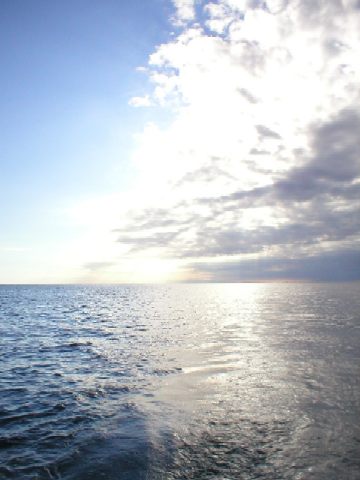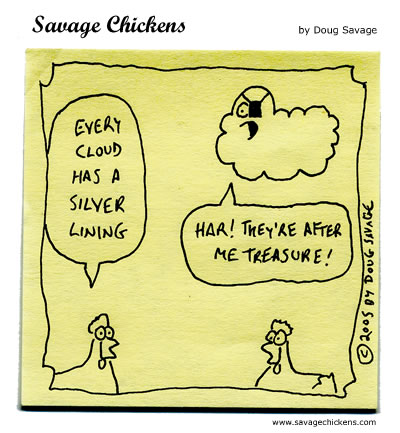
Sometimes going green can seem overwhelming. There are so many ways in which we affect our planet on a daily basis. There are some many toxins to avoid and so much help needed to make our world healthier. Where to begin?
CNN published a list of small things you can do to make a difference. Try to integrate a few of these pointers every day. You won’t know what hit you!
Workshop
1. Unplug your power tools. Figure out which cordless tools (like drill/drivers) get the most use, then unplug the chargers on all the rest. Most cordless tools have nickel cadmium (NiCad) batteries, which will hold some charge for up to a year. They lose 15 to 20 percent of their juice each month, but only take a couple of hours to power up again. Newer tools with lithium ion batteries lose just 2 to 5 percent of their charge each month, so they’ll be ready to go even if you haven’t charged them in ages.
2. Spread sawdust on your floor. Take the superfine shavings captured by your dust collection system, wet them down, then push them around with a stiff broom to sweep your concrete garage or workshop floor. The mix is as good as a power-guzzling shop vac at picking up dust but doesn’t swirl it into the air.
3. Up the wattage on lights. Where you still use incandescent bulbs (with dimmers or three-ways) on multiple fixtures in a room, try consolidating. One 100-watt incandescent emits more light than two 60-watt bulbs combined but requires 17 percent less power. The 100-watter also uses the same energy as four 25-watt bulbs, but pumps out twice as much light. Just be sure your bulbs don’t exceed the maximum wattage recommendation for each fixture. This Old House: Energy-saving bulbs
4. Eat your leftover take-out. Then save the plastic containers it came in–which can’t be recycled in most municipal waste systems–and use them to organize your nails, screws, and leftover paints. Not only does their tight seal help preserve solvents, but the see-through containers stack neatly and display contents clearly. For added strength, double up the thin ones.
5. Save used paint thinner. After cleaning oil-based finishes from brushes and tools, allow the dirty solvent to sit overnight. The sludge will settle to the bottom of the jar, leaving a layer of clear thinner on top. Carefully decant the clear thinner into a clean jar, and reseal it for future use. Be sure to dispose of the leftover sludge at a hazardous-waste-disposal site–never down a sink drain or into a street gutter.
6. Mix it up in the garage. Combine all those cans of leftover white paint that inevitably collect after you decorate the house and use them to paint the garage or workshop. (Make sure only to mix latex with latex and oils with oils.) You’ll keep the stuff out of the trash, and by adding the semi-glosses to the flats and eggshells, you’ll end up with a sheen that’s easy to clean.
7. Turn things on their heads. Store paint cans upside down so the solvents–which separate and rise to the top–get trapped under the bottom of the can. Not only will paint last longer, but solvents won’t be able to slowly seep out through the lid this way.
8. Take charge of your charges. Invest in an inexpensive battery tester, then set up a “battery center” where you can store new cells, check used ones for power, and set aside those that have burned out and have to be recycled. A designated collection spot will deter you from throwing bad batteries in the garbage. Once or twice a year, you just take the pile to your town’s recycling center.
Kitchen
9. Take your fridge’s temperature. Stick an appliance thermometer in a glass of water in the center of your refrigerator, or between frozen goods in the freezer, overnight. Your fridge temp should be between 37 and 40 degrees F (no more, to keep bacteria at bay); your freezer between zero and 5 degrees. If either compartment is too cold, adjust the setting, since keeping them just 10 degrees colder than necessary can boost your energy consumption by up to 25 percent.
10. Freeze your assets. Slip a dollar bill between the rubber gasket on your freezer and fridge doors and the frame, then close the door and tug on the buck. Notice any resistance? If not, the seal’s not tight enough and cold air is probably leaking out, making your fridge work harder to stay cool. Try this on all four sides of the door.
If necessary, call the manufacturer’s service department to find out how to replace the gasket.
11. Throw a dinner party. And clear out that second fridge or freezer in the garage or basement. Then banish the appliance to the recycling center. Getting rid of either one can save you more than $200 a year, especially if it’s an old, inefficient model. This Old House: House-part recycling centers
12. Invite your biggest buddy over. Ask him to help you move your fridge out of direct sunlight or away from the range. The heat from either will force a refrigerator compressor to gobble up more energy than necessary. A fridge uses up to 2.5 percent more power for each degree the surrounding temperature is above 70 degrees. So moving it out of a 90-degree spot can save you as much as $70 a year. If you can’t move it, at least block any sunny window with curtains and put as big a buffer as you can between it and the range.
13. Use the dishwasher. Doing a full load in your machine is far more efficient than washing the same number of dishes by hand. This is especially true if you have an Energy Star dishwasher, which requires an average of 4 gallons of water per load, compared with the 24 gallons it takes to do them in the sink. Using one will save you 5,000 gallons of water, $40 in utility costs, and 230 hours of your time each year.
Bathroom
14. Turn your toilet tank blue. Or green or red. Pour food coloring into the water in the tank, wait two hours, then check to see if any color has seeped into the bowl. If it has, your tank’s flapper is leaking, either from mineral buildup or worn parts. After you flush the dye away so it doesn’t stain, head to the hardware store for a replacement flapper assembly (then go to thisoldhouse.com for instructions on how to install it). Toilet leaks waste up to a gallon of water per minute. That’s more than 43,000 gallons a month.
15. Run the shower. Place a 1-gallon bucket under the running water, then see how long it takes for it to fill up. If it’s less than 20 seconds, replace the showerhead with one that sprays 1.5 gallons per minute. That could save as much as 14,600 gallons of water a year–especially if you limit your showers to 10 minutes. It will also save you $22 on your annual water bill, and $150 per year on water heating.
16. Go from scalding to just hot. Turn your water heater’s temperature setting down from the standard 140 degrees F to 120 degrees. Not only will this save you some bucks, it’ll also slow down mineral buildup and corrosion, prolonging the life of your tank. Since a new water heater costs about $900 installed, each additional year of use saves you money as well.
17. End the water torture. One drip per second from a leaky faucet or pipe can waste up to 5 gallons of water a day–and 1,800 gallons a year. While you won’t notice much of an increase on your water bill (around $3 annually), if an overlooked leak soaks through your kitchen floor, you could wind up with a $1,000 repair job–money that could have been saved by simply replacing a 50-cent washer.
Entries
18. Wipe your feet. Equip your exterior doors with a series of mats–or one long “walk-off” mat–so everyone enters with clean shoes. As long as there’s room for five steps on the mats, you’ll drastically reduce the amount of grime tracked in. That means fewer pathogens that cause disease and less chemical cleanup. It will also mean improved indoor air quality, since dirt embedded in a carpet can become airborne when it’s tromped on or agitated by a vacuum.
Basement/laundry
19. Reach behind your clothes washer. Turn down the hot water tap for the washing machine so less goes into the warm-water cycle. Perspiration and most other dirt dislodge best at body temperature, so you don’t need water that’s warmer than 100 degrees. Since most washers simply open both the hot and cold taps to make “warm” water, it may take longer to fill the machine. But you’ll save about $40 annually on your water-heating bill.
20. Spend more time in the basement. Make sure furnace filters in forced-air systems are clean. Dirty furnace filters restrict airflow and increase energy use. Cleaning them, or swapping them out each month during the winter, can save you up to 5 percent on your heating costs. Also schedule an annual checkup before the heat comes on to see that the furnace is properly calibrated.
Living areas
21. Listen to your mother. And put on a sweater. That way you can turn down your thermostat this winter. Adjust it by just one degree for eight hours a day, and you could save 1 percent on your monthly heating bills. Do it for 24 hours and save 3 percent. Try setting the temp at 70 degrees during the day and 62 at night during winter (and 78 or higher come summer). Heating and air-conditioning account for nearly half the energy used in our homes, so every little bit less you use makes a dent.
22. Worship the sun. Or at least use it to your advantage. Open blinds or drapes to let in natural solar heat on cold days, then close them once the sun sets, and you can reduce your heating bills by 10 percent. You can also cut your cooling costs by up to 33 percent in the summer by blocking out sunlight with exterior blinds, shutters, or awnings. To keep rooms bright, paint or paper with light or reflective colors.
Originally this is from CNN but I found it on
Only Positive News











